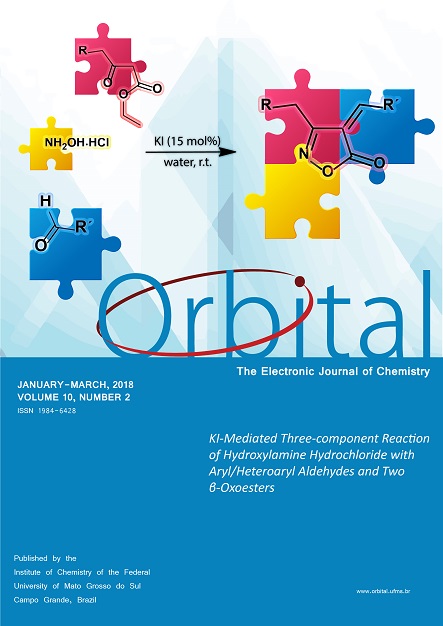In situ Transesterification of Babassu for Production of Biodiesel as Sustainable Energy Option for Aratuba Community in State of Ceará, Brazil
Published 2018-04-01
Keywords
- babassu,
- biodiesel,
- in-situ transesterification,
- spectroscopy,
- thermogravimetric analysis
How to Cite
Abstract
This work reports the obtaining biodiesel of babassu (Atallea speciosa) collected in Aratuba-CE-Brazil using transesterification in-situ methodology, and chromatographic, spectroscopic and thermogravimetric characterization as way of improving its utilization as energetic resource by local producers. Lauric acid was found as majority compound of the oil (46.65%) by chromatographic analysis (CG-MS). Spectroscopy analysis of nuclear magnetic resonance of hydrogen and carbon (1H and 13C NMR) confirmed the obtaining of the biodiesel and reaction conversion was 99.8 ± 0.6 %. Physicochemical analyzes as specific mass at and kinematic viscosity at 20 and 40°C, acid number, iodine number and free glycerin were performed, and the parameters were in accordance with Brazilian legislation for biodiesel. Thermogravimetric analysis (TG) in oxidative and inert atmosphere and three different heating rates were made in order to evaluate the thermal stability of babassu biodiesel and the average value of the activation energy (Ea) determined by isoconversional method proposed by Flynn-Wall-Ozawa and modified by Doyle was Ea = 96.87 ± 3.59 kJ.mol-1 for inert atmosphere and Ea = 108.04 ± 15.19 kJ.mol-1 for oxidative atmosphere. Rancimat curve showed induction time higher than specified by the Brazilian legislation for biodiesel (11.57h). Thus, the results corroborated the production of biodiesel as cleaner and sustainable option for the peasants of Aratuba.

